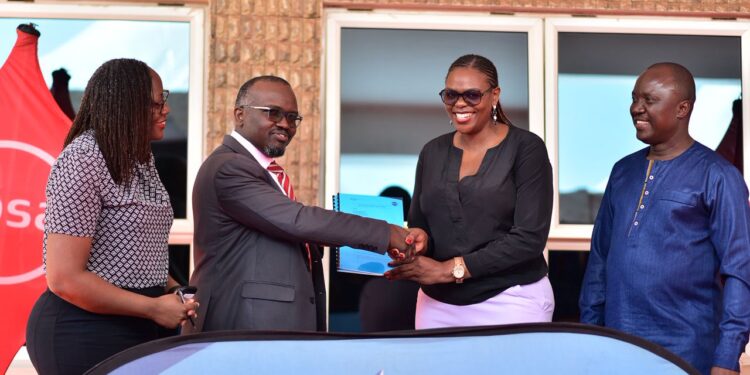Absa Bank Uganda has entered a three-year partnership with Junior Achievement Uganda (JAU) to deliver a financial literacy and entrepreneurship programme that will empower more than 25,000 learners (aged up to 25 years) with practical skills for sustainable livelihoods and the future world of work.
The initiative builds on Absa Group’s long-standing collaboration with Junior Achievement International, through which the bank has championed youth-focused education, entrepreneurship, and financial literacy programmes across Africa.
The programme engages learners through training and experiential models such as the Company Programme, where students create and manage mini-companies.
Innovation and leadership camps nurture creativity and problem-solving skills, while the National Company of the Year Competition highlights student-run enterprises.
Job shadowing opportunities give students workplace exposure. Learners also gain access to Absa’s Ready-to-Work online platform, which equips young people with essential skills in finance, people management, work, and entrepreneurship.
Speaking at the launch, David Wandera, Managing Director at Absa Bank Uganda, said, “A sustainable financial system rests on two pillars: well-functioning institutions and financially empowered consumers. By investing in young people’s financial literacy, we are helping them make responsible choices that open the door to financial freedom and long-term prosperity for themselves and their communities.”
The programme involves Absa employee volunteers as mentors and trainers during boot camps, workshops, and events that align with global observances such as World Youth Day, World Savings Day, and Global Entrepreneurship Week.
Junior Achievement Uganda Country Director, Rachael Mwagale, said, “This partnership enables us to scale our reach to learners in Mukono, Mpigi, and Kampala, equipping the next generation with the confidence and skills to thrive in a rapidly changing world.”
This partnership supports Absa’s vision to promote financial inclusion and develop financially competent consumers. By empowering young people to make responsible choices, the program builds a more resilient, knowledge-driven Ugandan economy.











